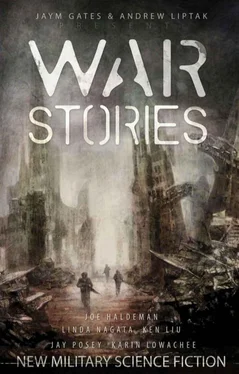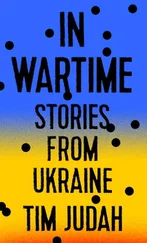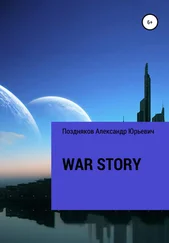She had lived this moment so many times in her nightmares, both sleeping and waking. How could she not? Even without war, there were so many ways it could come: a neighbor backing out of a driveway, an aspirated grape, a toppled bookcase, a tangled bed sheet, an electrical outlet, a few centimeters of water in an unattended bath.
For Um Hamza, it was immeasurably worse. There were government tanks, air strikes, roadside bombs, poison gas, cruise missiles, collapsing buildings, malnourishment, disease, kidnappings, Farsi–speaking trainers with rocket launchers and machine guns. And of course, there were the masked militiamen who had executed her brother, burned their home, and driven them across the Jordanian border into the Za’atri refugee camp. So when she’d held that warm bundle for the first time in the camp clinic and looked into her son’s wrinkled pink face, all she could think about was his death. For two weeks, depression kept her in bed. Her mother changed Hamza’s diapers, rocked him, played with him and brought him to her for mechanical feedings. Hamza’s seventeenth birthday was like a sentencing. When the card arrived from the Syrian Transitional Authority, she sobbed for hours. It still sat on her desk, a wretched, superstitious totem that she was terrified to destroy. Birthday cake and candles on one side; on the other, a happy, smiling, cartoon bee. FOR YOUR PROTECTION, the card said in Arabic above a QR code and an explanation of “What You Need to Know.” When the Wasp itself buzzed into the olive grove a few days later, she watched it for hours, shaking feverishly. For weeks she wouldn’t let Hamza outdoors without her. She even walked him down to the gas station and back, to his burning shame, their two Wasps buzzing along in trail. It was inevitable, she knew. And she was right.
She put an arm around Tariq’s shoulders and walked outside with him. Her Wasp sat on a sunny spot of the porch railing, recharging. When it saw her it fluttered skyward, an obscene little blot against the blue sky.
As they walked the kilometer down to the gas station, she could see the cars pulling off the highway, the men running.
When she came around from the back of the gas station, she saw her husband kneeling on the pavement, muttering to God and rocking their limp boy in his arms. A ring of bystanders stood around them, whispering and praying. Uncle Fouad stood among them, red–faced, yelling into his cell–phone. Something about a fruit truck.
The Wasp lay on the ground, broken, twitching. Hamza must have caught it with his final slap. A machine, gray and small, muscle wire supporting insectile wings that were solar cells, coiled around a microprocessor and communications link and of course the toxin pouch and stinger. She raised a foot to grind it beneath her heel, but then considered how her own Wasp might react and gently placed her foot back on the ground.
She looked back to Hamza. Her beautiful, sweet boy, undiminished by seventeen years of poverty and war. Her boy, who had spent his summer turning wrenches and changing spark plugs with his father and grandfather in the auto shop. Who went door–to–door each Ramadan, on his own initiative, collecting donations for the Islamic Relief Mission. Who once sobbed with guilt when he shot a stray cat with a pellet gun, back when the possession of such things was not a death sentence. Dear, sweet Hamza.
She realized there was a separate group crowding around the doors of the convenience store on the far side of the pumps. She blindly grabbed at Uncle Fouad’s arm. He pulled away from the cell phone for a moment.
She pointed at the store. “What…?”
“It’s your father. They got him too. I’m sorry.”
Her legs gave out, and she sank to the pavement beside her husband. She had held herself together only because she had rehearsed this dreaded theater so many times in her mind’s eye, but this was a blow she had not seen coming.
She touched Hamza’s cold face and began to scream.
§
The police were afraid to approach the bodies, as this was an Occupation strike. There was no telling what might provoke another Wasp attack. They masked their fear and incompetence by blowing whistles and barking orders and making half–hearted efforts to clear out the spectators who were shooting video with their mobiles or AR glasses. One officer questioned witnesses, but his questions followed no logical path and he didn’t bother to write down the answers. No, sir, he didn’t do anything threatening. He was pumping gas. Yes, gas . He was filling up a fruit truck.
Ten minutes after the police came, Uncle Fouad’s phone rang. He listened without speaking and hung up. He said, “They took out the fruit truck about five kilometers north of here. Three people.”
A murmur passed through the crowd. Another piece in the puzzle. Above them, their Wasps whirled and danced, glimpsing faces, recording their expressions and judging their body language.
An entourage from the mosque arrived in a rusting blue van. The crowd parted as Hajj Omar disembarked, leaning on a wooden crutch to compensate for the leg he had lost in Homs. A scar divided the right side of his face from top to bottom, running clean through a cloudy gray eye. The crowd fell silent before this presence. He recited the Fatiha and performed the final rites for Hamza and Abu Khalid, and then delivered a sermon which became a blistering tirade against the Syrian Transitional Authority and the Occupation.
Um Hamza left before he was finished. She collapsed into bed and cried until sleep took her.
She woke after sunset, when Abu Hamza climbed into bed and touched her shoulder. She turned brusquely away from him, but he started to cry. Ashamed, she rolled over to touch him. It was dreary sex, sad and distant, a feeble echo of what their marriage had once been. Afterwards they held each other, but even that tenderness lacked intimacy. It was like two strangers holding hands as their crippled plane careened to the earth.
§
She woke to sunlight and quiet. The entire household was still asleep. She brewed a cup of tea, then went outside to pluck some fresh mint from the garden. She marveled at the serenity of the still–waking world. The olive trees were perfection itself: rows of them standing like sentinels, unmoved by even the faintest of breezes. A single black bird flapped across the sky.
She sat beneath an olive tree and leaned up against the trunk and sipped her tea. This is all she had ever wanted, this moment stretched into a lifetime. Cool mornings and olive trees and silence.
Her Wasp took up station over her.
“Good morning,” she said in English.
The Wasp gave no indication it had heard, but of course it had. It heard everything. Saw everything. Even smelled everything. All that data was aggregated and beamed to the United States and Canada and God knew where else, where it was filtered and analyzed and processed in vast server farms. Intelligent algorithms crunched away, drawing connections, matching words and behavior to pattern libraries, then sent their conclusions before hordes of young analysts sitting in the blue wash of computer screens. Perfect seeing. Perfect knowledge. And, when the wrong two patterns overlapped, perfect death.
He’d been pumping gas. What kind of pattern was that?
She went inside and found a pack of cigarettes in her husband’s jacket. She returned to her shaded spot under the tree and lit up. She smoked three cigarettes while she cruised the social networks on her phone, trying to forget, procrastinating. She’d been a queen in that world, once, back in the heady days when the revolution was young and the future was theirs for the making.
She had been a true believer. She marched with the protestors and shot video and live–tweeted massacres and built a following of more than fifteen thousand people. She made friends with activists and journalists and Middle East experts across the world. When the regime met their protests with war, she redoubled her efforts. And then, when the artillery barrages and the gunmen came to her village and they fled across the border to the Za’atri camp, she blogged everything.
Читать дальше












